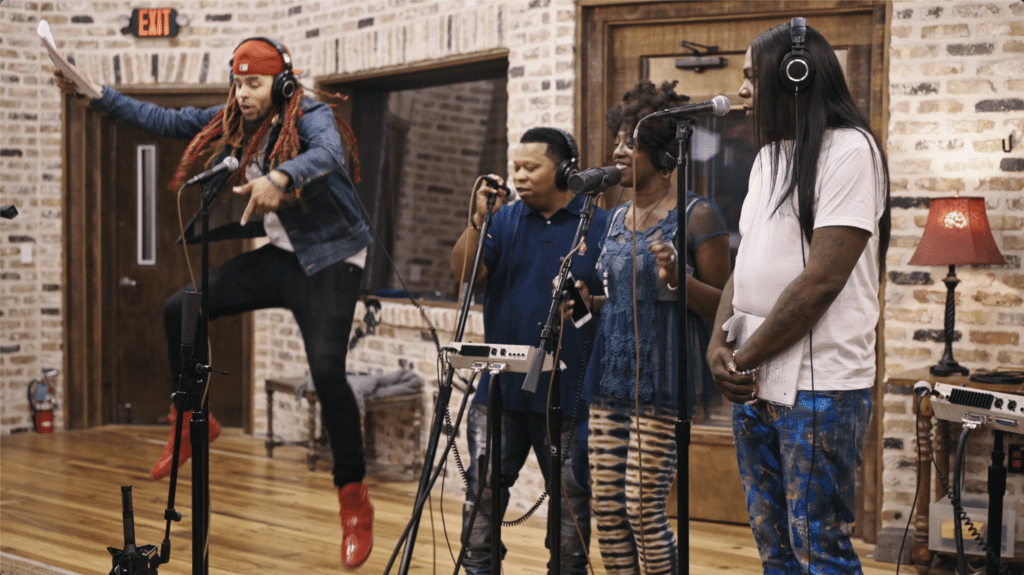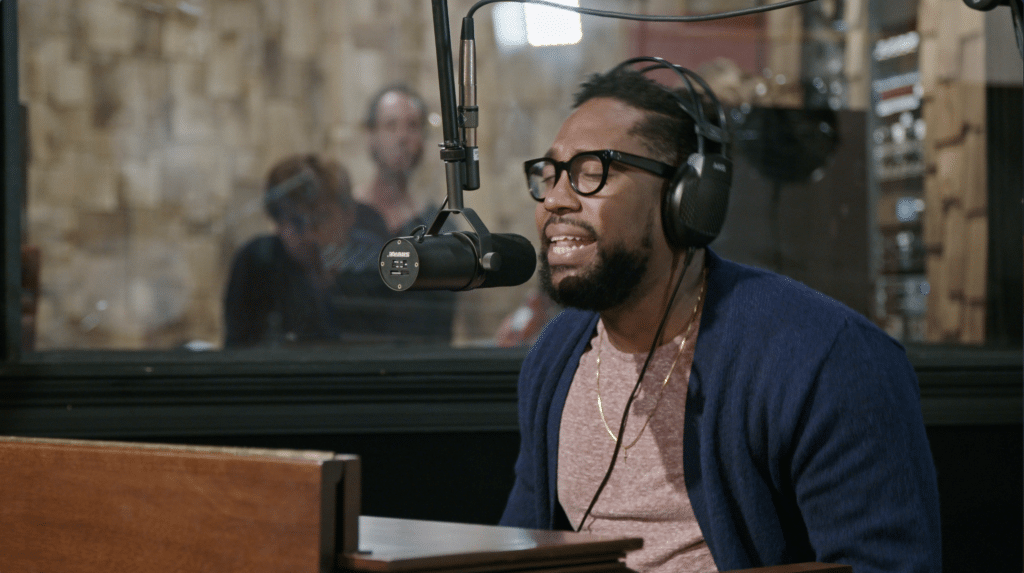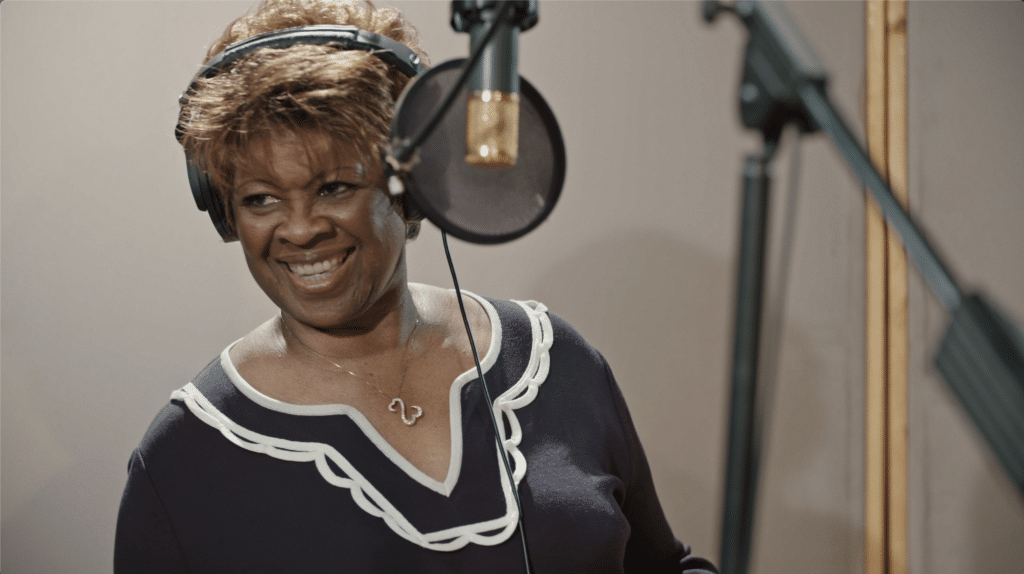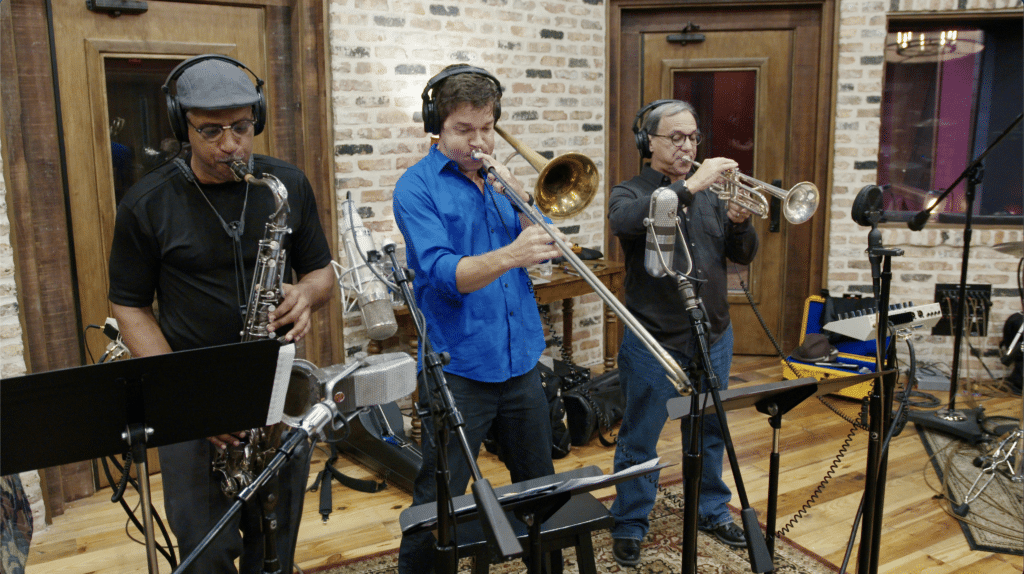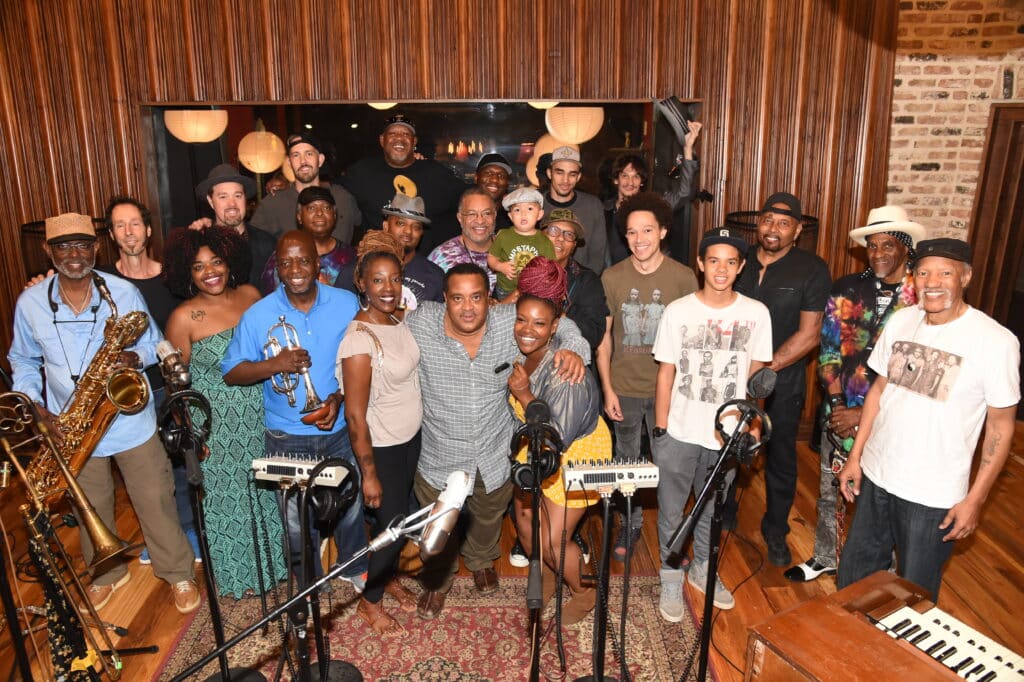Take Me To The River: New Orleans – a celebration of music history and legacy
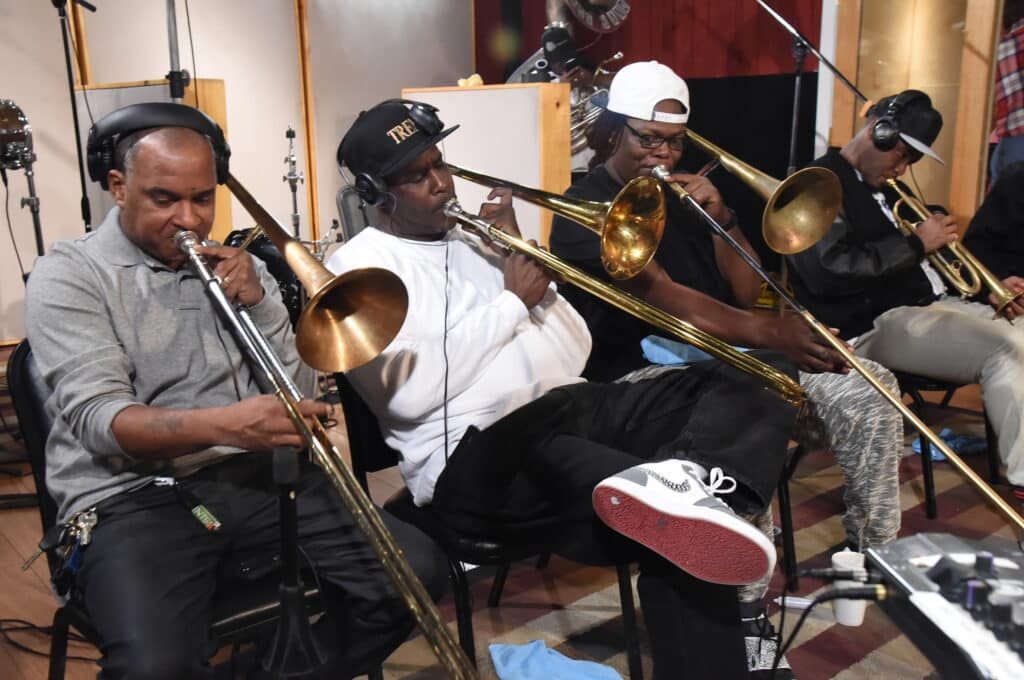
The music of New Orleans is not just considered a birthplace of jazz music but carries various styles of music. It is a unique global collaboration that gave birth to an exceptional musical genre that was never experienced traditionally.
In this episode, Tonya and Ian Fitzpatrick celebrate the history, heritage, legacy, and influence of the music of New Orleans and Louisiana with Take Me To The River: New Orleans film director Martin Shore and producer Ian Neville.
“This culture is precious. It’s real. We’re lucky to have New Orleans in our country. It’s a precious cultural jewel for the world. There’s no other place like it.”
Martin Shore
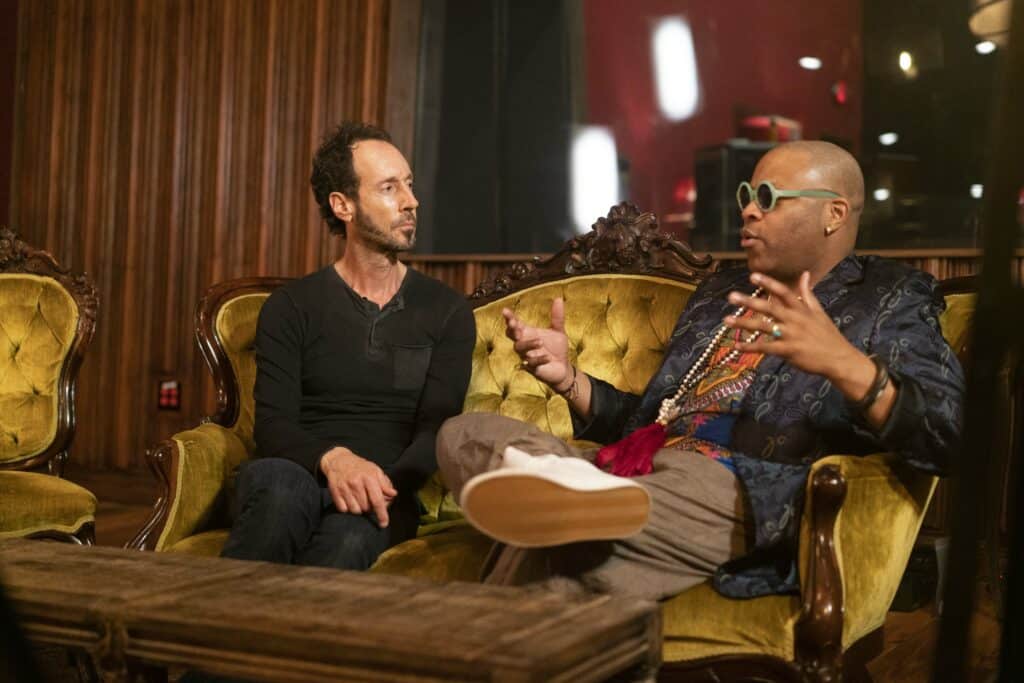
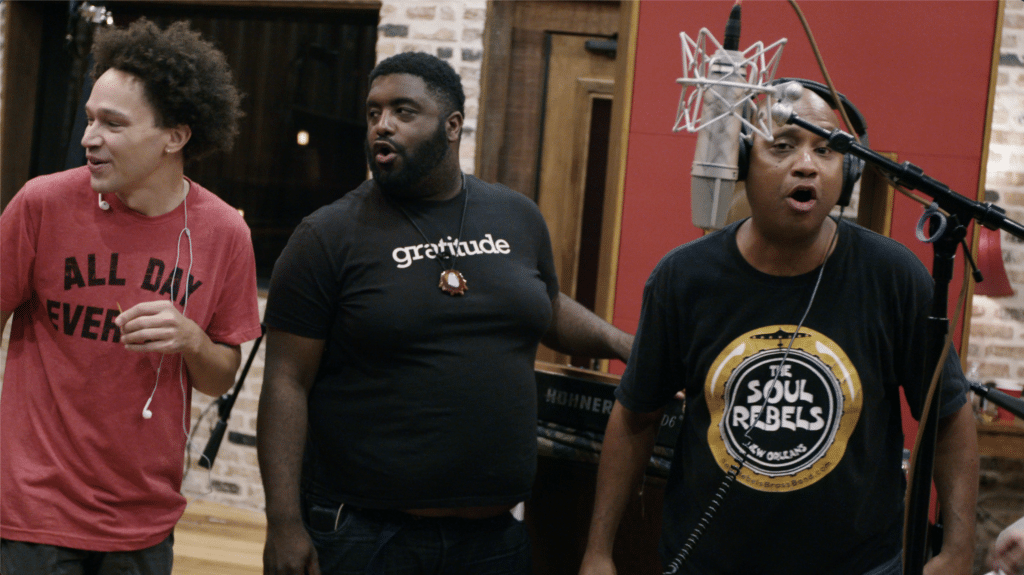
About our Guests
Martin Shore began his career as a professional musician and is the chairman of Social Capital, based in Santa Monica. It is considered as one of the fastest growing feature films and music companies in the entertainment industry.
Ian Neville is part of a well-known family consisting of Aaron Neville and “The Neville Brothers,” Born in New Orleans Ian has carved his space as an American singer, composer, and multi-instrumentalist musician.
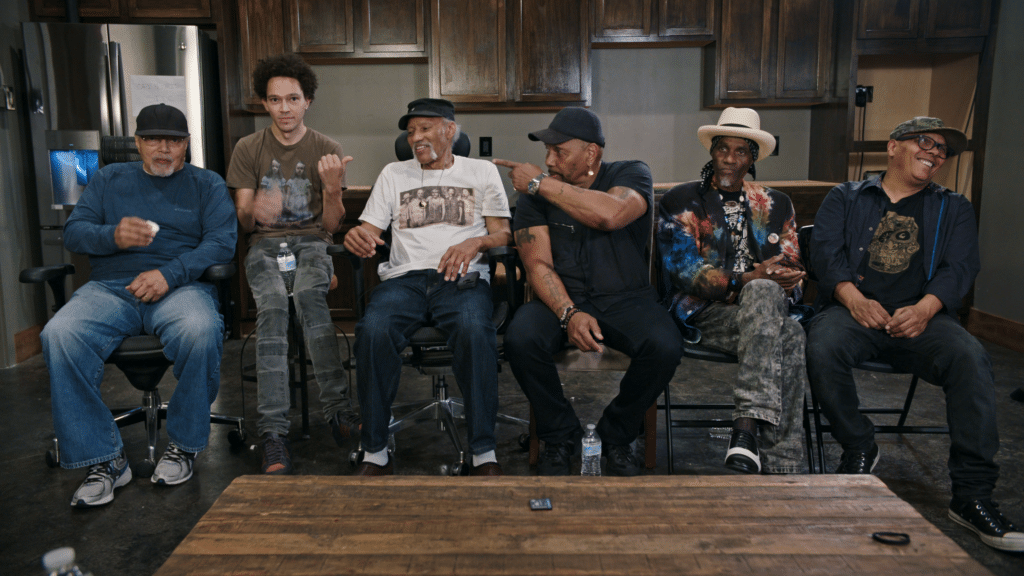
The gems uncovered in this podcast interview
Ian learned new things about the New Orleans community (6.53)
Ian walks us through his experience that got reiterated through this project which was something that a lot of the New Orleans community learned after Hurricane Katrina.
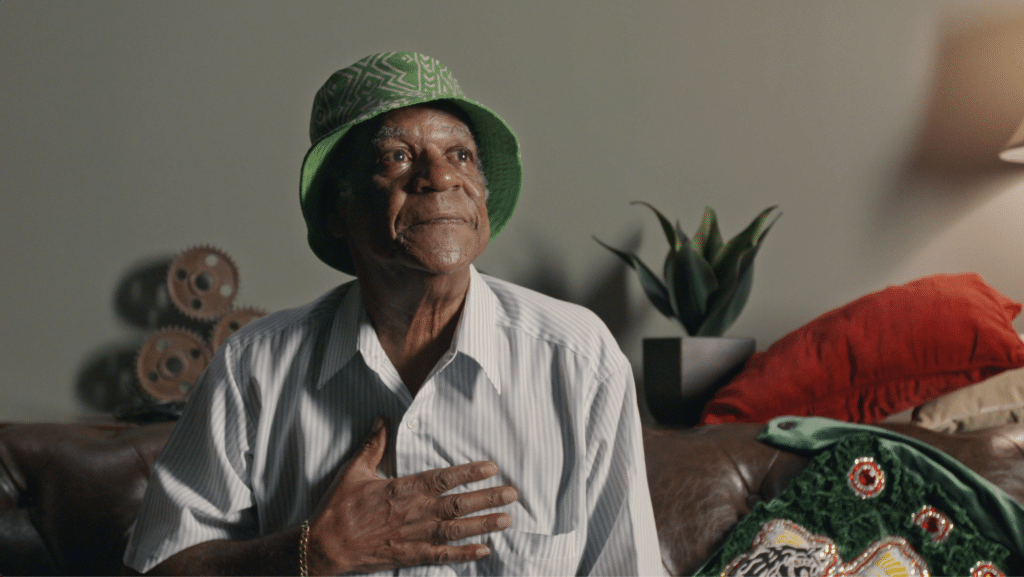
The seminal moment of Katrina (8.26)
Martin explains how Memphis and New Orleans are three act plays, where each session is pre Katrina, Katrina, and post Katrina. He also mentioned how adjusting the community is. “If you go through its history, (it) has always adjusted to different things that happened. One of the most significant things in New Orleans history is the Haitian slave revolt and how that really changed the whole face of New Orleans“
Magic moments from the film (16.33)
Ian narrates an incident where he was able to recreate something super special with his family and how he captured some special moments.
Filming of the Take Me To The River: New Orleans (24.12)
Martin speaks about the pandemic challenge and why he refused to release the film without having a chance to be in theaters.
Reflections
Music is a powerful universal language where white musicians and black musicians come together, protect and stand by each other to create something special for their audience. And this inter-generational reach of music is the highlight of Martin Shore and Ian Neville’s new film Take Me To The River: New Orleans.
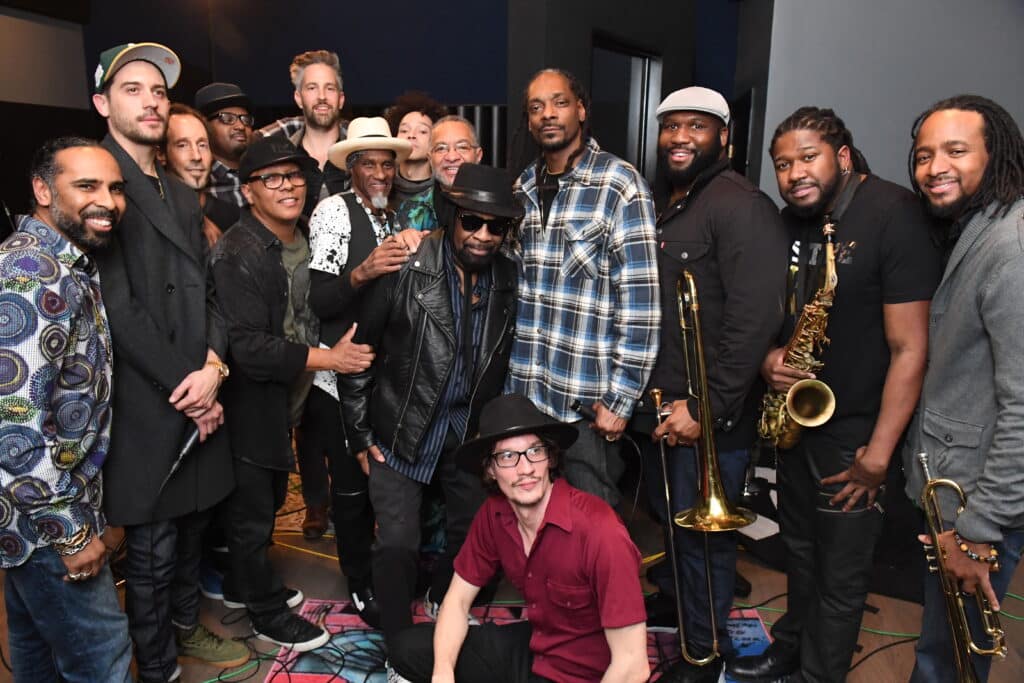
Links
Take Me To The River: New Orleans
Follow Martin Shore on Instagram
Follow World Footprints on Instagram
SUBSCRIBE to World Footprints newsletter
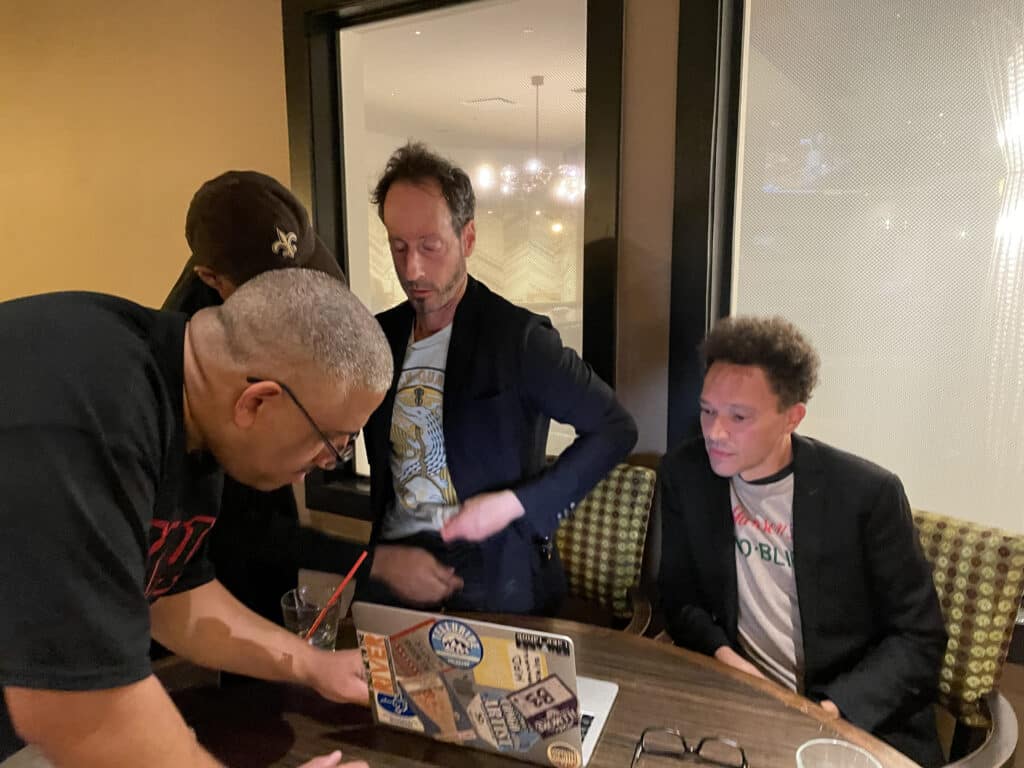
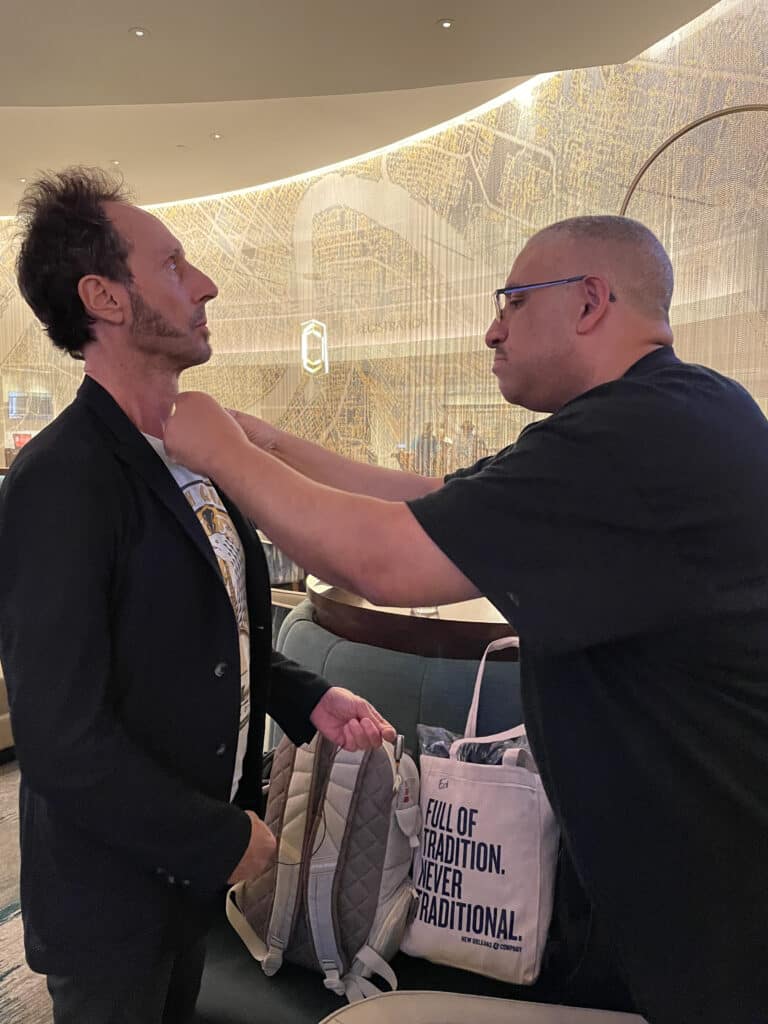
READ FULL TRANSCRIPTS FROM THE LINK BELOW
Book Your Stay Now in New Orleans
Use the interactive map below to search, compare and book hotels & rentals at the best prices that are sourced from a variety of platforms including Booking.com, Hotels.com, Expedia, Vrbo and more. You can move the map to search for accommodations in other areas and also use the filter to find restaurants, purchase tickets for tours and attractions and locate various points of interest!
Guests:
Tonya Welcome. You’re listening to World Footprints. I’m Tonya Fitzpatrick. Ian And I’m Ian Fitzpatrick. On today’s episode, we’re going to celebrate the history, heritage, legacy, and influence of the music of New Orleans and Louisiana with Take Me to the River New Orleans with film director Martin Shore and producer Ian Neville. Martin When you come, you look at all of New Orleans. Don’t just go on Bourbon Street and drink Hurricanes, of course, do that one time and have fun with it. But there’s so much more. There’s so much more. And so getting that story out that this culture is precious. It’s real. We’re lucky to have New Orleans in our country. It’s just such a precious cultural jewel for the world, and there’s no other place like it. Tonya You just heard Martin Shore, director of the new film Take Me to the River New Orleans, a film that celebrates the rich musical history, the heritage, legacy and influence of New Orleans and Louisiana. Ian During a recent visit to New Orleans, we sat down with Martin and Ian at the Marriott in the French Quarter. Tonya Take Me to the River, New Orleans is the second of Martin’s music documentaries in the river series. The first film focused on the music of Memphis. But our conversation started with a discussion about his filmmaking process. Martin I’ve kind of classified my own type of filmmaking, and I’m not the exclusive one doing it, but it’s a living documentary. So it’s different than like a Ken Burns documentary, who I’m a big fan of. But it’s a very historically driven type of film, relying on talking heads and archival materials. This film is about letting you as a viewer feel like we did when we were in the room and kind of pulling back the curtain and allowing you to see Masters and legacy musician stars of today going through their creative process and learning how to collaborate together and breaking down walls as we’re doing it, whether it be generation, whether it be gender, whether it be race, whatever it is. And it’s important for people to see transparency, how it works in real life. Right. We’re lucky as musicians, we have to be transparent. Otherwise we don’t know what we’re playing. Right. We have to know what we’re doing. It’s a process. And I call a living documentary because it’s an evergreen, meaning that you can come back in six months or a year or two years, and it still feels fresh. It still feels as if you were living that moment. And to me, I’ve had people say, oh, yeah, I’m just checking in with my friends. I wanted to see Skip again. I wanted to see Ian’s father Art again. I wanted to feel that presence again or that influence or that inspiration. So they’re meant to be evergreens. And that’s why I call them living documentary. Ian Before we get into your newest film, Take Me to the River, New Orleans, one of the things that struck me about Take Me to the River. The first one that dealt with the Memphis music was to have these Masters working with young people who were in the school program that was so moving and so powerful and just to have that energy and that magic and to see that collaboration across generations was powerful. And to hear these Masters say to these young people, you’ve got this, you’re going places. That was fantastic because it cut across so many of these lines. Or we may say young people, what do they know? And to have these Masters affirm that for young people, I thought was one of the great things about that film. Martin I couldn’t agree more. The interesting thing is real true mentoring goes both ways. Right. And what some of these legacy musicians learned from the younger musicians and in some cases different walks of life, completely not just generation, but different genre, just sort of a whole different point of view. Right. And with Take Me to the River Memphis, mixing rap with other types of genre was new. We were sort of cutting new ground. Ian Neville Crossing eras like you did in that one was new ground. Yeah, that was fresh. Martin I think we started something because you can see more of that going on now, not only genre crossing, but generation crossing and more gender crossing, of course. But I think Otis Clay said it best. It’s not a generation gap, it’s a communication gap. And if that’s all we have to commit to, is committing to communicate and to cooperate. And can we do great things? Tonya Absolutely. So Ian, why did you want to be involved with the New Orleans production? Ian Neville This kind of piggybacks on what he said a minute ago. But this project is more like an aquarium experience than like an archaeological dig because it’s also happening and growing and evolving together, which is the vibe we all got when we got different sets of musicians into these sessions, whether it be a group of all New Orleans people that seem like a natural fit or when we had Snoop and G-Eazy and George Porter and Big Sam and myself and my cousin Ivan and all of us figuring out how to make something new out of common ground. Tonya I mentioned you come from a legacy family. Everyone knows about the Neville Brothers and the Neville cousins. Ian Neville Almost not everybody Tonya Anyone who’s woke knows about the whole family. Did you learn something new about your community, about the style of New Orleans music? And I really don’t know if New Orleans has a style. I think there are several styles that are the New Orleans sound. But did you learn something new through this process? Ian Neville I got to work with a lot of new people that I hadn’t got to record with before. That was cool and great experience and exciting. And one of the familiar things that got reiterated through this project was something that a lot of the New Orleans community learned after Katrina who were all displaced was how close knit of a family scene it is in New Orleans for all the bands. So I’m in a band, my homies in this band. We know guys in that band, and sometimes we all switch and play in this band together, and it’s all real communal thing. Whereas when we were all relocated briefly, there was a vibe within the music scene where I was that was like real competitive against band to band as opposed to like a tide rises, all ships kind of vibe. It was very competitive against each other. Whereas here it’s like a communal band pool of musicians. And that concept was solidified through this project. Ian I think Martin, in the original film that focused on Memphis, clearly the historical moment that put Memphis front and center was the assassination of Dr. King. When we think about New Orleans and contemporary history, it’s Katrina. It’s that seminal moment. How is that dealt with in this film and the stories that you’re able to weave around that narrative? Martin It’s a great question. So the film Memphis and New Orleans, they’re three act plays, and each session really is a three act play. But in terms of the film itself, there’s pre Katrina. Katrina and the possibility of this amazing culture heritage legacy being wiped out. And then there’s post Katrina where there’s sort of the Phoenix rising up out of the water, not Ashes, but some. Ian Neville Cases there was both. Martin Yeah. I think just like in the Martin Luther King scenario in Memphis, there was kind of a tectonic shift in here. It was a little bit more subtle. In Memphis, it was very distinct, but neighborhoods changed sort of the way the community was knitted together changed a bit and things adjusted to it. And New Orleans, if you go through its history, has always adjusted to different things that happen. One of the most significant things in New Orleans history is the Haitian slave revolt and how that really changed the whole face of New Orleans. So it has always adjusted and there’s really great things about post Katrina. And I think that the future of New Orleans is always going to be great as long as we pay attention to it and as long as we’ve support it and nourish it. And that comes in having people come and experience it personally. So that connection becomes deep, it becomes personal and real. And so the film and the record and our education initiative is all about drawing people to come to New Orleans and experience it and start the New Orleans adventure. Ian You know. Tonya You mentioned the need for stewardship, I’ll say for New Orleans, where has society failed the caretaking of New Orleans music and history and society? And what can we do better going forward other than coming to New Orleans and enjoying the atmosphere? Martin I’ll take this one. I think when something is so good, it tends to be taken for granted. The proper amount of support and nourishment and attention sometimes wane and just sort of gets lost because it’s a given. It’s over there. But the truth of the matter is anything that is this precious, that literally could be destroyed, Mother Earth or Acts of God, whatever needs to always be paid attention to and supported. And there’s some really good things that are happening in the city where the history, the heritage, the culture will be permanently documented. I can’t really talk too much about some of these things, but there’s different museum talks and the Louisiana Trail that’s being put together. So the state of Louisiana is doing some good stuff, and New Orleans and NOLA & Company is doing some great things to just make sure that when you come, you look at all of New Orleans. Don’t just go on Bourbon Street and drink Hurricanes, of course, do that one time and have fun with it. But there’s so much more. There’s so much more. And so getting that story out that this culture is precious, it’s real. We’re lucky to have New Orleans in our country. It’s just such a precious cultural jewel for the world. And there’s no other place like it. Ian One of the things about New Orleans is that it gets up in you. And we had James Carville say that to you about to us when we had him on the show years ago. This is a special place, and even though we’re not from here, we’re very much attached to the city. And Ian, I want to ask you, someone who grew up here, the magic that DNA about New Orleans. Just help people understand why this place is so special. Ian Neville I think people come here and they immediately feel a feeling that it’s not like anywhere else. It’s hard to pinpoint, but like just examples from when I was a kid growing up, numerous people would come down here and be like, hey, I’m visiting New Orleans. And then they just never leave to go back to get any of that stuff. They’re like, I think I got all I need here now. And they kind of recalibrate what’s important to them when they get here. And it turns into the aspects that are the markers of our culture, the music, the food are the Southern familyness of everyone to a degree at times when it’s crucial anyway. Yes, all those kind of aspects that don’t exist in other places that haven’t been talking about New Orleans being able to adapt and adjust through the years. New Orleans was here before the United States was here. So we had to morph and adjust to all that. And we’re still doing it. Male Announcer You are listening to the award winning World Footprints podcast with Ian and Tonya Fitzpatrick. World Footprints connects you to the world through powerful storytelling that illuminates our common humanity and uncovers the full narrative of our cultural and human experiences. Support World Footprints by leaving a five star rating and review on Apple Podcasts or your favorite podcast platform. This will help other like minded and interested travelers find us. Also, please join the World Footprints community by subscribing to our newsletter from Worldfootprints.com. Tonya “I’m not sure, but I’m almost positive that all music came from New Orleans,” Ernie K. Doe. Here’s more of our conversation with film director Martin Shore and producer musician Ian Neville about their latest film, Take Me to the River New Orleans, a film that celebrates the rich musical history, the heritage, legacy and influence of New Orleans and Louisiana. Ian I want to ask you, Ian, when we look at this film, there’s always these magical moments or these moments of improvisation that come through. Can you point any of those moments, magic moments for you and being part of the film or in some of the sessions that you were part of? Ian Neville I’m going to go to the part that featured my family because I’m going to call it an incident that was an incident that wouldn’t have happened if all the proper channels pre planning and all that needed to take place at the time. The way that happened was because we are a family. And it was like, oh, some of us are here. Let’s pull in this person, that person. And now we got the whole crew. We can recreate something super special. And luckily, timing worked out like in lifewise and just local daily timing. And it worked out for us and we captured some special moments. Tonya I mentioned to Martin that I’m a Motown girl and I asked whether he had plans to add Detroit to his river film series. I also asked about his purpose for creating these music documentaries. Martin Well, there’s unique stories that really need to be told. The Mississippi Delta and New Orleans are really big pieces of American culture. We don’t have Doric and Corinthian pillars or impressionistic painters. What we have is our music and our music has influenced and inspired the world’s popular music. It’s still doing it. Check out Africa right now. I mean, they’re rappin’ their butts off. It’s crazy, right? And in India to traditional Indian music and even in the Middle East now. So we’re still rappin’ around the world. And like I used to say, like the ancient Memphians, they chronicled their culture with big pyramids and tombs and hieroglyphics, and they tried to tell people who they were. Right. And we’re doing that as Americans and we shall all stand proud. I know we take a lot of hits on different stuff around the world, but our music, we should stand tall and proud. And as a New Orleanian musician, we are giving the world something extra special and that needs to always be recognized. And one thing I’ll just go back to. New Orleans is not an easy place to live in, right? There is constant worry about the weather and about things that might happen. But the spirit overcomes all of that in such a seamless way that nobody ever thinks about how much goes into creating this wonderful place to visit, this incredible culture and please come and support all of the businesses, the musicians, the wonderful attractions that are here, because it takes work to provide this. And I think sometimes that’s taken for granted. Tonya Yes. As a very dear friend of mine once said, New Orleans has a waterproof soul and that soul shines. It survives. Martin Gloria. Tonya So do you have plans to do Detroit? I’m going back to that question. Martin I think Detroit is an amazing, obviously musical city, and it’s produced we all know the legacy of Motown is so deep. I’m not sure that there’s a lot more to tell there. I think it’s rich, but I think there’s some other stories that might be more, I guess, urgent to tell the story of Motown. And Barry Gordy. It sort of was like a one man movement. Right. I mean, there were other artists that did come out of Detroit, but it was a big movement. And he assembled it like a car factory. Right. I mean, you go in one room and you go in one room, you learn how to style your hair, you go in the next room, you learn how to dance, you go in the other room, you learn how to dress. Right. And he had it down. And I think it’s been documented pretty well. It’s not to say we’ll never go there, but I think there’s some other stories that need to be told. Ian But even if you just stick to the Mississippi River, you’ve got St. Louis, a place where we spent a lot of time in and a lot of rich history, a lot of rich musical history. And then at the other end, the source of the Mississippi, Minneapolis and Lake Itasca. And so when we talk about modern music, there’s so much to tell. Just following the river, so to speak. Martin Definitely. And one of my big wishes and this is like a gigantic story is to do London and go to the Thames River and change it up completely. But that story is so big because our music created like a whole new music that got repackaged and came over here. And they called it the British Invasion. But it was all our artillery. We gave all the tanks and guns and all the weapons. They just repackaged it and came over here. Ian Blew us away. Tonya That would be excellent. I have to ask you, will the New Orleans, Take Me to the River New Orleans, will it break my heart with the I mean, you tugged at my heartstrings when we watched the Memphis movie. Tonya Is New Orleans going to have the same effect with the loss of some of our Masters? Ian Neville Yeah, that was the topic of conversation at the beginning of this project. Was that aspect of the Memphis one. I was cognizant of that and noticed that part of that story. And had this story not been recorded and captured and told when we did, there wouldn’t be that nostalgia end of it because the people involved wouldn’t have been here to tell their story. So the timing was crucial. And the fact that it stings a little bit on some of it is because it needed to be captured when it did or it would have been lost. Tonya When did you start filming New Orleans? Because Memphis seemed like you did…you filmed it over a number of years. Martin These projects just take a long time, right. Because the reality is you have to get it right. And getting it right means that it plays for the hometown. And if you do it right and the hometown blesses what it is and what it’s trying to do, then it will play everywhere in the world. So it just takes a while. Unfortunately, we ran into this thing called The Pandemic, and that added like two years to the whole thing because I refused to release the film without it having a chance to be in theaters. We mix it Skywalker and it’s the best theater sound you’re going to get. And I want people to experience that, and especially students. And we got a grant recently so that students can go to the theater and experience the theater experience together and then have some academic prompts after. But the reality is these projects take a while to get it right. We are a nonprofit, so getting musicians to do the nonprofit session, the nonprofit rate all of that. It’s not the highest priority. So you just have to wait. You have to be strategic. A lot of our filming for New Orleans happened during Mardi Gras and Jazz Fest because all the musicians are here in town, but at the same time, they’re as busy as hell. So we had to juggle. Ian One of the things that struck me about the Memphis film is that there was this community of musicians that transcended race and to see them working together at STAX [Records], whether they were background singers or session musicians, and just the love and appreciation that they have for each other. Tonya And during volatile times in the city’s history. Ian So as we think about New Orleans and this music community, are we going to see that dimension shared with the world about the collaboration that transcends race? Because that’s been front and center at so many of the issues that we’re continuing to deal with? Martin Absolutely. Probably one of the greatest examples is the session with Galactic, Mannie Fresh, DEE-1, Big Freedia, Erica Falls. True. There you go. Right. Ian Neville And that’s one of the most fire tracks on the record, I feel like, too. Martin So, yeah, absolutely. That’s a big part of the social movement is to break down barriers and to make sure that generations to come will appreciate it because they’re seeing people like themselves in it. Right. So if you’re able to span the generation, you’re able to have that evergreen that we talked about earlier. Ian Neville It’s usually these studio families and groups and camps that we’re talking about that are at the spearhead of breaking through any kind of segregation type aspect of it like Sly and the Family Stone, Booker T. and the MGs, like several acts down here, just had women and men together in groups. And it was always the musicians that were the most open minded. That’s probably not a coincidence. Martin Well, it was most exemplified, too. I mean, I think New Orleans was going through the same exact thing that STAX and Memphis was going through in the 60s in the same way at Sea St. It was really like sort of the equivalent to some of the Studios in Memphis. Most people don’t even know what Booker T. and the MGs what the MG stood for. It didn’t stand for the car. It’s Mixed Group. Booker T. and the Mixed Group, they didn’t know if it was a White group or Black group. They didn’t really put pictures out. That was like the underlying… Tonya Yeah. And it’s the beautiful thing about music. It’s a universal language. And as socially conscious travel media platform as we are, bridging that cultural gap is what music does as well. Gentlemen, I thank you so much. I wish we had more time, but I have a couple more questions for you. Martin Well, let’s do it again. Tonya We saw Take Me to the River New Orleans after we sat down with Martin and Ian, and my expectations of powerful music documentary were really met. The expectations I had following our viewing of Memphis, which was really awe inspiring to me. Ian Both films, the one on Memphis and the one on New Orleans, really show this intergenerational reach of music in both of these cities. And what I loved about both films and what I loved about New Orleans is that you had musicians, many of whom were known locally in New Orleans, but perhaps not so much on a bigger scale, but their influence was vast and wide. And the people who knew each other within the community, they knew who the superstars were. And even the young people in these communities, they came to know who these giants were. And you see that reflected in the movie. And it’s great to see how young people who are in band programs pick up and take to the teaching from these masters. It’s pretty amazing stuff to see that as it plays out. Tonya Right and I’ve always said music is a universal language. It’s something we all relate to. And the fact that we saw in his two documentaries, White musicians and Black musicians coming together, creating something special. And even in tumultuous times in our country’s history, like during the civil rights movement, during riots, when Black and White were not supposed to be together, were not supposed to be integrated, but where they protected each other and stood up for each other. And I think that’s very powerful. And I think that’s one of the favorite messages that I took from this film series. In closing, it’s befitting that we reflect on the words of Ellis Marsalis [Jr.], a former guest of World Footprints and the late patriarch of the Marsalis family. Another New Orleans musical family: “In New Orleans, culture doesn’t come down from on high, it bubbles up from the streets.” We’re Tonya and Ian Fitzpatrick and we are so happy that you’re here. It’s our pleasure to feed your wanderlust and share our beautiful human tapestry with you. Please support us with a five star rating and review on Apple Podcasts or wherever you listen to podcasts. Ian We’d love for you to join our community so please subscribe to our bi weekly newsletter from our website at Worldfootprints.com. Our newsletter is full of travel news, tips and resources including our favorite links. Tonya Thank you for your support and for giving us the space to share the world through the stories we offer on World Footprints. And until we meet again, next time, be kind to one another. Female Announcer This World Footprints podcast with Ian and Tonya Fitzpatrick is a production of World Footprints, LLC, Silver Spring, Maryland. The multi award winning podcast is available on Worldfootprints.com and on audio platforms worldwide including iHeartRadio, Public Radio Exchange, iTunes and Stitcher. Connect with the world one story at a time with World Footprints. Visit Worldfootprints.com to enjoy more podcasts and explore hundreds of articles from international travel writers and be sure to subscribe to the newsletter. World Footprints is a trademark of World Footprints LLC, which retains all rights to the World Footprints portfolio including Worldfootprints.com and this podcast.
